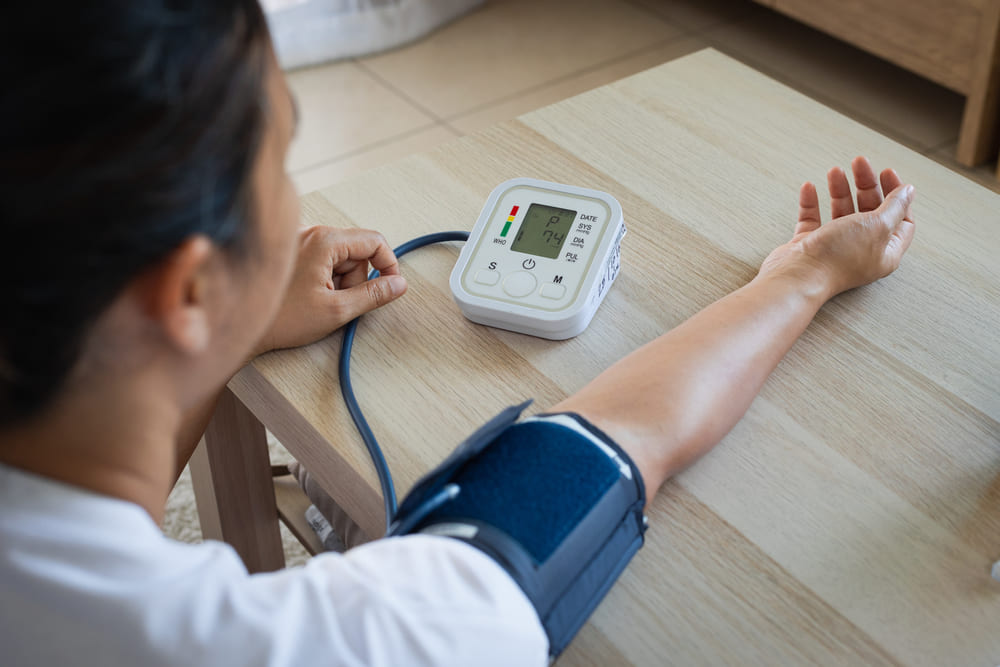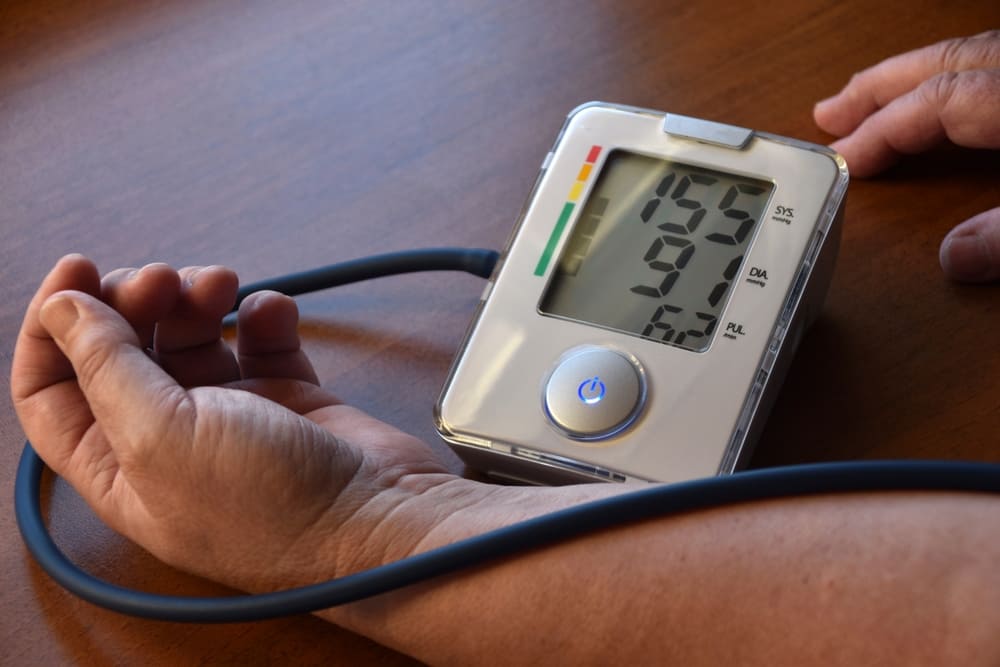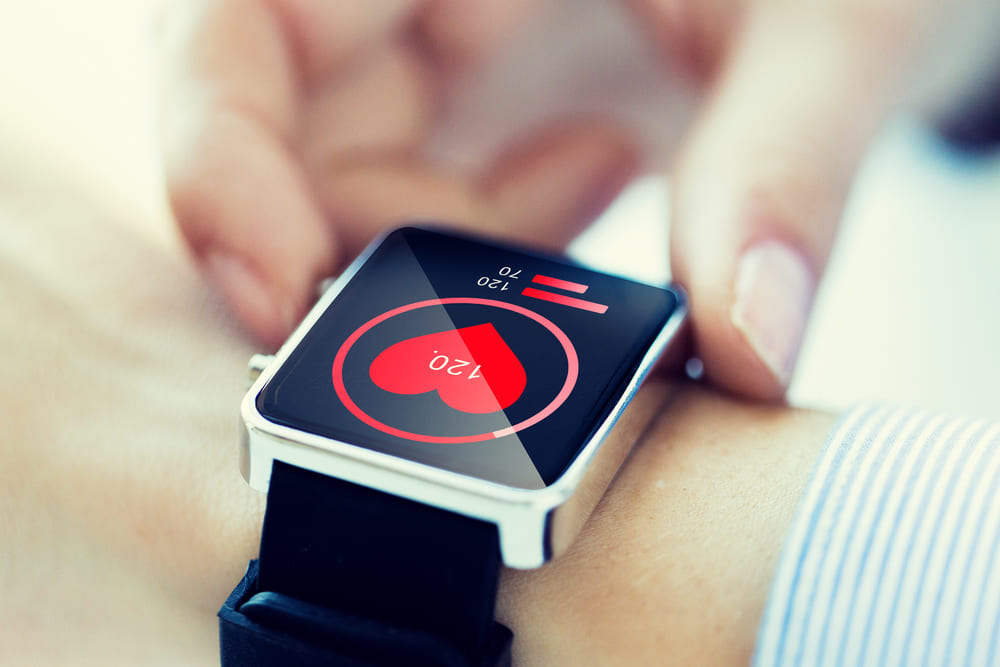Have you ever wondered how your sleep quality might affect your blood pressure? Or considered the possibility that hypertension could be influencing your sleep patterns?
Recent research has begun to highlight a significant connection between hypertension (high blood pressure) and the rest you get at night. This link is crucial to understand, as it impacts a vast portion of the global population.
Hypertension is a leading risk factor for heart disease and is often aggravated by sleeplessness. Some disorders, like sleep apnea, can even initiate or worsen hypertension.
In this article, we aim to uncover how these two health issues intertwine and the effects they have on each other. We also aim to offer essential strategies for their effective management.
“Can sleep deprivation make my blood pressure go up? Tell me how.”
According to Francisco Lopez-Jimenez, M.D., writing on the Mayo Clinic website, “People who sleep six hours or less may have steeper increases in blood pressure. If you already have high blood pressure, not sleeping well may make your blood pressure worse.”
When we don’t get enough natural rest, our bodies get tired out. This stress increases a hormone called cortisol, which can raise our blood pressure. This might not be a major issue if it happens occasionally, but if it keeps happening consistently, our blood pressure can stay high for a long time, which is not good.
Also, when we’re really tired, we might not make the best choices about what to eat or whether to exercise. We might overeat junk food or not move around enough, and both of these things can make our blood pressure go up even more.
It’s like a vicious cycle: not sleeping well can lead to higher blood pressure, and high blood pressure can make it harder to sleep well. It’s essential to try to break this cycle by getting good sleep and living a healthy lifestyle.
New research reveals that midday sleep appears to lower blood pressure levels compared to those who didn’t take a nap. An afternoon snooze also reboots energy levels and improves the mood.
“Can sleep apnea cause a rise in my blood pressure? Give me more information.”
Sleep apnea is a common problem where you stop breathing for short times during the night. One type is called “Obstructive Sleep Apnea (OSA),” and it is linked to high blood pressure.
When you have OSA, your breathing stops and starts over and over while you sleep. This means your body doesn’t get enough oxygen, and it makes your body tense up.
According to Alexa Fry et al., writing on the Sleep Foundation website, “In healthy individuals, blood pressure naturally lowers by between 10 and 20% at night, a phenomenon that is sometimes referred to as ‘blood pressure dipping.’ People with severe OSA experience blood pressure dips of less than 10%, which indicates a ‘non-dipping’ blood pressure pattern. People who have non-dipping blood pressure at night face an increased risk for cardiovascular issues.”
Doctors have discovered that when people with high blood pressure get help for their sleep apnea, their blood pressure can also get better.

“Does insomnia affect my blood pressure? Show me why.”
Insomnia means having a hard time either getting to sleep or staying asleep, which can impact your blood pressure. Think of your body like a machine that needs to rest. When you have insomnia, it’s like your body never gets to turn off and relax.
According to Kimberly Holland, writing in Healthline, “Insomnia can raise your blood pressure. When you don’t have enough sleep, the elevated hormones can affect your blood pressure and how your heart pumps. This can lead to high BP and related issues, such as heart disease, stroke, and heart attack.”
Lack of sleep can make you feel highly anxious a lot of the time. This isn’t just about feeling worried – it has a physical effect on your body by making your blood pressure shoot up.
Having high blood pressure is a serious problem because it can lead to heart problems and various other health issues. That’s why if you’re having trouble sleeping, it’s crucial to get help.
“What are circadian rhythm disorders affecting blood pressure? Help me understand.”
Circadian rhythm disorders happen when your body’s natural sleep-wake cycle (your body clock) gets disrupted. This is something that many people who work shifts (like at night or with changing schedules) experience.
According to Jiayang Zhang et al., writing in Biomolecules, “Blood pressure follows a circadian rhythm. It increases on waking in the morning and decreases during sleeping at night. Disruption of the circadian BP rhythm has been reported to be associated with worsened cardiovascular outcomes.”
Usually, your body clock knows when to shut down and when to be awake. But with circadian rhythm disorders, that clock gets confused. This can make your body struggle to keep things running smoothly, including how it controls your blood pressure.
That’s why people with haphazard work schedules or late nights need to try and keep a regular pattern as much as possible. It helps keep the body’s clock – and blood pressure – in check.

“Can restless leg syndrome make my nightly blood pressure go up? Explain this to me.”
Restless Leg Syndrome (RLS) is a problem where you feel uncomfortable sensations in your legs when you’re trying to rest. It can make you feel like moving your legs constantly, affecting your slumber.
Imagine trying to sleep while your legs keep wanting to move around involuntarily. This isn’t just annoying – it can lead to high blood pressure at night, which is called nighttime hypertension.
According to the American Heart Association (AHA), “Sleep disturbance, periodic limb movement and increased blood pressure caused by restless legs syndrome can negatively affect cardiovascular health.”
Your body needs good quality downtime to keep everything working right, including your blood pressure. So, if you have RLS, getting help for it is vital.
By taking care of your RLS, you’re not just making your legs feel better, you’re also helping your heart.
“Do inadequate sleep and chronic conditions impact heart health? Make me better prepared.”
When we don’t give our bodies enough relaxation time, it can affect our other chronic conditions. Health conditions such as obesity, cholesterol, diabetes, and hypertension – along with other hereditary factors – can all have a multiplicative impact on the heart.
To keep the heart healthy, it’s essential to get enough of a sleep which has to offer good restfulness. Seven to eight hours of a break from activity is like a reset button for your body, helping keep all ailments under control.
Regular monitoring can help you keep track of your health and catch any problems early. Also, awareness of how vital sleep is for your heart and all-round health can make a big difference in preventing health issues from worsening.
You know it in your heart
As we have seen, sleep and high blood pressure are intricately connected. Several other factors may be at play, too. According to a renowned psychologist, Dr. Michael Breus (who is often referred to as “The Sleep Doctor”), “Your physical and mental state play a major role in how well – or poorly – you sleep, as do numerous factors related to your external environment. Understanding how these variables impact your sleep can help you establish a healthy sleep routine and get an adequate amount of rest each night.”
We all must work on breaking the negative cycle – by sleeping better, relaxing more, eating healthy foods, getting some exercise, and making sure to see the doctor. Stay heart-healthy.
References
- Lopez-Jimenez, Francisco, M.D. Mayo Clinic, “Is it true that sleep deprivation can cause high blood pressure?” Accessed: December 27, 2023. https://www.mayoclinic.org/diseases-conditions/high-blood-pressure/expert-answers/sleep-deprivation/faq-20057959
- Fry, Alexa, et al. Sleep Foundation. “How Sleep Apnea Affects Blood Pressure.” Accessed: December 27, 2023. https://www.sleepfoundation.org/sleep-apnea/how-sleep-apnea-affects-blood-pressure
- Holland, Kimberly. Healthline. “High Blood Pressure and Insomnia: Everything You Need to Know.” Accessed: December 27, 2023. https://www.healthline.com/health/high-blood-pressure/can-high-blood-pressure-cause-insomnia
- Zhang, Jiayang, et al. Biomolecules. “Circadian Blood Pressure Rhythm in Cardiovascular and Renal Health and Disease.” Accessed: December 27, 2023. https://www.ncbi.nlm.nih.gov/pmc/articles/PMC8230716/
- American Heart Association (AHA). “Restless Legs Syndrome and Heart Health.” Accessed: December 27, 2023. https://www.heart.org/en/health-topics/sleep-disorders/restless-legs-syndrome
- Breus, Dr. Michael. Sleep Doctor. “How Sleep Works.” Accessed: December 27, 2023. https://sleepdoctor.com/how-sleep-works/














